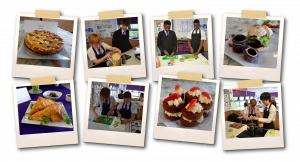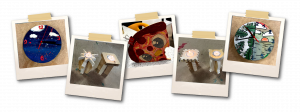Cooking and Nutrition
The big ideas in cooking and nutrition at Atherton High School
- For all students to build knowledge on the principles of nutrition and health and apply to daily food choices.
- For all students to know how to be safe and hygienic when working with foods and in a kitchen.
- Students will develop understanding on the processes of preparing a range of dishes so that they are able to feed themselves and others a healthy and varied diet.
- For all students to become competent in a range of techniques used in food preparation including selecting and preparing ingredients; using utensils and electrical equipment; applying heat in different ways; using awareness of the sensory properties of food to make improvements and create their own recipes and instill a love of working with food.
- Students will build knowledge on foods produced in Britain and across the world and how we can effectively support food in relation to impacts on the environment.
How the cooking and nutrition curriculum contributes to the school’s curriculum intent
Our curriculum supports students from all backgrounds, including those who are disadvantaged, so students can access a high quality, knowledge-rich curriculum. Our school community believes strongly in providing disadvantaged pupils with a curriculum that enables them to reach the academic standards of their non-disadvantaged peers. Our goal is to bring our young people into the big conversations of our disciplines, to bring depth to our curriculum so they can understand the world around them.
- Knowledge – Knowledge is at the heart of every scheme of learning. Students will learn and be able to demonstrate effective and safe cooking processes by planning, preparing and cooking a variety of food commodities whilst using different cooking techniques and equipment. Students will develop knowledge and understanding on the functional properties and chemical characteristics of food as well as a sound knowledge of the nutritional content of food and drinks. Students will know the relationship between diet, nutrition and health, including the physiological effects of a poor diet and health. Students will explore the environmental, ethical and socio-cultural influences on food availability, production processes and the consumer. Students will also be exposed to a broad range of ingredients and processes from different culinary traditions (traditional British and international) to inspire new ideas, evoke creativity and to modify existing recipes.
- Vocabulary rich – We have selected a challenging list of vocabulary, to enrich learning and deepen subject understanding in cooking and nutrition. Through use of subject specific language students will build a repertoire of terminology relating to methods of cookery, finishes to foods, food processes and specific to the equipment used. Students will learn the vocabulary used within the food industry including the Hospitality and Catering sectors and specific language relating to food legislation.
- Aspiration – Through a knowledge rich ambitious curriculum students will be challenged to devise their own solutions to problems using investigational techniques and knowledge of the scientific principles of food, along with food choices, food testing and nutrition. The opportunities of vocational experiences will also enable students to strive for post 16 opportunities within the food industry.
- Character is built through the promotion of resilience to learn from and improve on faults in the method or the end product of practical cookery. Students will build knowledge on the mental and physical effects of a poor diet and be given the tools to make positive changes for themselves and those around them. Students will understand what a working kitchen looks like and the roles and responsibilities within it.
- Love learning in cooking and nutrition takes the students on a cultural journey of food exploring how our senses work and the impact these can have on our decision making. Students will have opportunities to be creative with their recipes be an active participant in how the food evolves from a list of ingredients into a dish focusing on the different processes taken. The curriculum is progressive which enables students to develop independence and the ability to choose their own pathways within the subject and beyond.
The key concepts woven through the curriculum
- Food provenance
- Diet and health
- Nutrition
- Food commodities
- Food science
- Food safety and hygiene
- Cooking and food preparation






